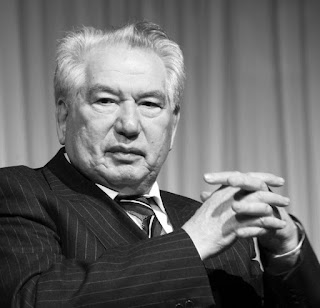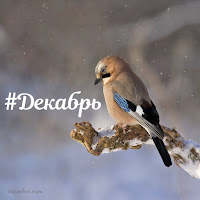16 мая_гр18_ур7_д9
Здравствуйте сегодня понедельник 16 мая
Вот ваше задание на вторник 17 мая:
Homework
Speaking
Workbook Lesson 7
- exe.34-36 pp. 59-60
- read grammar notes on The Particles - ТО and - НИБУДЬ pp. 64-66
Phonetic Supplement
- pp.89-91
Be prepared to talk about Immigration
Textbook
- p. 81 fill in the blanks
- exe. 115-116 pp.87-88
Reading
Stage 2 Part 2
- review vocabulary for the stories on pp.15 and 17 by rereading the articles
- https://www.cram.com/flashcards/internetsafety-nightatmuseum-pp15-17-12779770
- preview vocabulary for stories on pp. 19 and 21
Cultural Awareness
Владимир Мединский - Vladimir Medinsky
- born July 18, 1970
- a Russian political figure, academic and publicist
- from May 2012 to January 2020 served as the Minister of Culture
- a member of the General Council of the United Russia party (the party in power)
Views
- Medinsky has been described as a "nationalist enamoured of classicism and traditional values.
- Vladimir Medinsky supports the removal of Vladimir Lenin's body from the Lenin's Mausoleum to bury it.
- Medinsky believes that Stalin statues should be erected in places where the majority of local people are in favor.
- In 2013, Medinsky's Culture Ministry proposed an updated cultural policy blueprint. Calling for "a rejection of the principles of tolerance and multiculturalism", it emphasizes Russian "traditional values" and cautions against "pseudo-art" that may be at variance with those values.
- In 2015, Medinsky called for the creation of a Russian "patriotic Internet" to combat Western ideas, adding that those who are against Russia are against the truth.
- Medinsky's father was one of the Chernobyl liquidators.
- was born on the 12 December 1928 and passed away on 10 June 2008
- was a Kyrgyz author who wrote mainly in Russian, but also in Kyrgyz
- one of the best known figures in Kyrgyzstan's literature
- was born to a Kyrgyz father and Tatar mother. Aitmatov's parents were civil servants in Sheker. In 1937, his father was charged with "bourgeois nationalism" in Moscow, arrested, and executed in 1938.
- lived at a time when Kyrgyzstan was being transformed from one of the most remote lands of the Russian Empire to a republic of the USSR
- studied at a Soviet school in Sheker
- also worked from an early age
- at fourteen, he was an assistant to the Secretary at the Village Counsel (сельский совет = сельсовет)
- later held jobs as a tax collector, a loader, an engineer's assistant and continued with many other types of work
- In 1946, he began studying at the Animal Husbandry Division of the Kyrghyz Agricultural Institute in Frunze (now Bishkek)
- from 1956-58 switched to literary studies at the Maxim Gorky Literature Institute in Moscow
- worked for the main Soviet newspaper Pravda for 8 years
- first two publications appeared in 1952 in Russian: "The Newspaper Boy Dziuio" and "Ашым"
- first work published in Kyrgyz was "Ак Жаан" (White rain, 1954), and his well-known work "Jamila" (Джамила) appeared in 1958
- 1980 saw his first novel "The Day Lasts More than a Hundred Years" (И дольше века длится день).
- "The Day Lasts More than a Hundred Years" and other writings were translated into several languages
- some of his stories were filmed, like "The First Teacher" in 1965, "Jamila" in 1969, and "Red Scarf" (1970) as "The Girl with the Red Scarf "(1978).
- As many educated Kyrgyzs, was fluent in both Kyrgyz and Russian. As he explained in one of his interviews, Russian was as much of a native language for him as Kyrgyz. Most of his early works he wrote in Kyrgyz; some of these he later translated into Russian himself, while others were translated into Russian by other translators. Since 1966, he was writing in Russian
- was first the ambassador for the Soviet Union and later for Kyrgyzstan, to the European Union, NATO, UNESCO and the Benelux countries
- suffered kidney failure, and on 16 May 2008 was admitted to a hospital in Nuremberg, Germany, where he died of pneumonia on 10 June 2008 at the age of 79
- his remains were flown to Kyrgyzstan, where there were numerous ceremonies before he was buried in Ata-Beyit cemetery
- His obituary in The New York Times characterized him as "a Communist writer whose novels and plays before the collapse of the Soviet Union gave a voice to the people of the remote Soviet republic of Kyrgyz" and adds that he "later became a diplomat and a friend and adviser to the Soviet leader Mikhail Gorbachev"
Сергей Собянин
- born 21 June 1958
- a Russian politician
- serving as the 3rd Mayor of Moscow since 21 October 2010.
- the Governor of Tyumen Oblast (2001–2005)
- Head of the presidential administration (2005–2008)
- Deputy Prime Minister of Russia (2008–2010 in Vladimir Putin's Second Cabinet)
- member of the ruling United Russia political party, and is elected to its higher governing bodies
- current member of presidium of Regional Council of the United Russia in Moscow
- the head political the party's Moscow branch from March 2011 to December 2012
- as the Mayor of Moscow has gradually relaxed the massive construction projects of his predecessor Yury Luzhkov, for which he has won acclaim for the "most sane piece of city planning in years"
- created Moscow Media, a holding company for a number of TV channels, radio stations, and newspapers, owned and controlled by the Moscow government
- won praise for his efforts in combatting corruption
- at the same time was criticized for the banning of pride parades in the city, for which he was strongly condemned by LGBT groups







Comments
Post a Comment